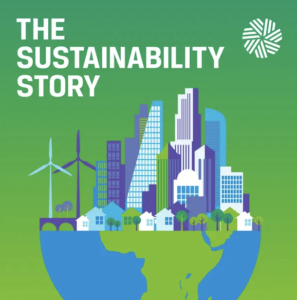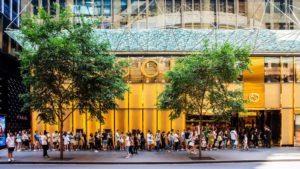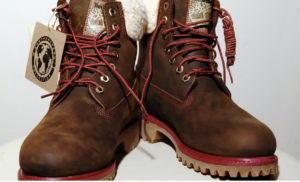 In the latest podcast from Ecotextile Talks, former Timberland chief operating officer (COO) Ken Pucker shares some home truths about the success of current ESG (environmental, social and governance) frameworks in play across the fashion industry.
In the latest podcast from Ecotextile Talks, former Timberland chief operating officer (COO) Ken Pucker shares some home truths about the success of current ESG (environmental, social and governance) frameworks in play across the fashion industry.
Pucker, now an advisory director at Berkshire Partners, as well as providing advice to groups pressing for the New York Fashion Sustainability and Social Accountability Act, says the sector has jumped from one initiative to another over the past 25 years in the hope of finding a formula to drive transformative environmental and social change in the apparel industry, but concludes that “it hasn’t worked”.
https://www.ecotextile.com/2022021728979/fashion-retail-news/podcast-re-thinking-the-rules-of-fashion.html
 Allbirds is a footwear startup focused on simple design, comfort, and sustainable natural materials. The case describes the company’s product development process that works with suppliers to develop natural materials including wool and sugarcane to substitute for conventional petroleum-based materials and leather. The case is set in 2021, when Allbirds was extending its product range into apparel, and expanding beyond its online store to open more retail stores around the world. Allbirds was freely sharing its know-how and material innovations with its competitors to try to scale its efforts to decarbonize fashion, but was also keen to remain ahead and differentiated based on simple design, comfort, and sustainable natural materials. The case highlights the growing environmental impact of the footwear industry, including from its use of leather and fossil-fuel-based materials, and its focus on shorter product lifespans.
Allbirds is a footwear startup focused on simple design, comfort, and sustainable natural materials. The case describes the company’s product development process that works with suppliers to develop natural materials including wool and sugarcane to substitute for conventional petroleum-based materials and leather. The case is set in 2021, when Allbirds was extending its product range into apparel, and expanding beyond its online store to open more retail stores around the world. Allbirds was freely sharing its know-how and material innovations with its competitors to try to scale its efforts to decarbonize fashion, but was also keen to remain ahead and differentiated based on simple design, comfort, and sustainable natural materials. The case highlights the growing environmental impact of the footwear industry, including from its use of leather and fossil-fuel-based materials, and its focus on shorter product lifespans. We talk with Ken Pucker, Advisory Director at Berkshire Partners and a Senior Lecturer at the Fletcher School at Tufts University.
We talk with Ken Pucker, Advisory Director at Berkshire Partners and a Senior Lecturer at the Fletcher School at Tufts University. Business of Fashion
Business of Fashion
 The Guardian
The Guardian